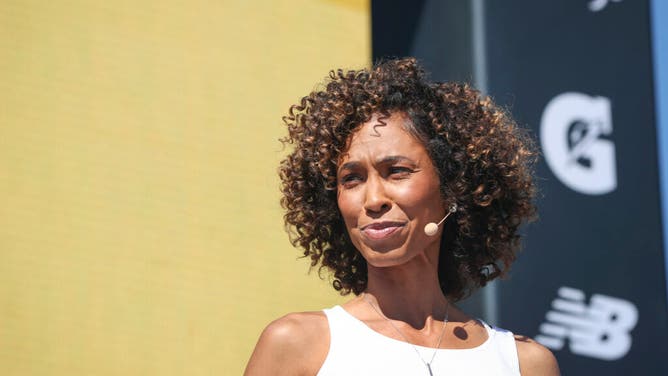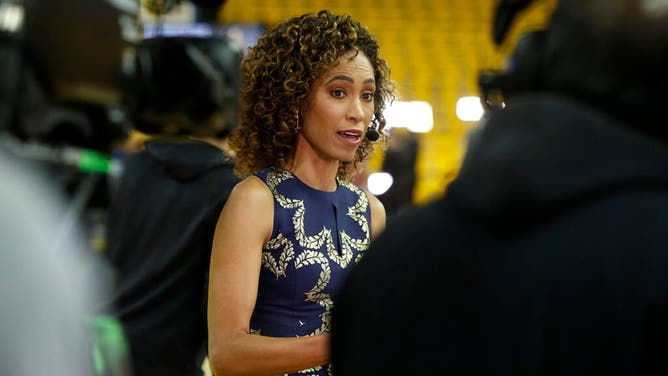Sage Steele Joins Clay And Buck To Discuss The Hypocrisy Of 'Diversity' At ESPN
ESPN loves to preach about diversity. But according to Sage Steele, "diversity" is just a nice word for identity politics.
If you're not on the right team, you can't play the game. You must check the boxes, toe the line, follow the narrative.
But that's not how Sage operates.
On The Clay Travis and Buck Sexton Show Friday, the former ESPN anchor explained how her ex-employer created a divisive work environment — all under the veil of diversity, equity and inclusion.
"It's pretty well documented that I was treated differently because I'm literally 'not black enough,'" Steele said.

(Photo by Meg Oliphant/Getty Images)
Steele is biracial. Her mother is Irish/Italian, and her father is black.
In fact, Colonel Gary Steele made history in 1966 as the Army's first black American to earn a varsity letter in football at West Point.
"He was an is an incredible man and my hero. And the principles that he instilled in me and my brothers — that's what drives me and that's what really keeps me strong."
And as a self-proclaimed former "Army Brat," Steele lived all over the world. She experienced multiple different cultures and ways of life from an early age.
"It truly is the most diverse, beautiful upbringing," she said.
But that experience apparently didn't matter to the Worldwide Leader in Sports.
In June 2020, ESPN aired Time for Change: We Won't Be Defeated. It was an hour-long special exploring the intersection of race and sports in the wake of George Floyd's death.
Steele said she was blocked from participating in the program because some colleagues didn't feel she was an authentic voice for the black community. She wasn't "black enough."
"That was a painful thing," Steele told Clay and Buck. "But you know what? I'm glad it happened. That woke me up."
Sage Steele celebrates individuality, regardless of skin color.
Steele emphasized while she's far from perfect, she has always been authentic.
"I have always led with kindness and tried to treat people as I want to be treated. That is part of how I was raised and part of what I think God wants us to do," Steele said.
"So it was a great lesson like wow, even when you're true to yourself, which is what everybody preaches, I learned that it doesn't necessarily matter if you don't go along with a certain narrative."
That particular experience at ESPN, she said, was not only eye opening, but it also "brought up a little bit of rage" in her.
"What does it mean to not be black enough? What the hell does that mean? I don't know too many other cultures that do that to each other within their own community," she said.

Sage Steele spent 16 years at ESPN. (Photo by Rey Josue II/NBAE via Getty Images)
Regardless of racial, ethnic or religious background, "Isn't the goal that everybody should be able to stand on their own individual belief?" Clay asked.
Steele responded with a simple, yet novel, idea: If we don't have diversity of thought, then we don't really have diversity at all.
"If we can't accept others for their opinions, then why is anything else going to matter?" she said. "It's funny because we really do choose to focus on DEI throughout corporate America and everywhere. And global corporate decisions are made based on that. How about the diversity of thought?"
Sage nailed it.
You — not your skin color and certainly not your employer — determine what you believe.
Because without the freedom of individual thought and expression, there is no freedom at all. There is no diversity. Just a bunch of robots reading from the same script.